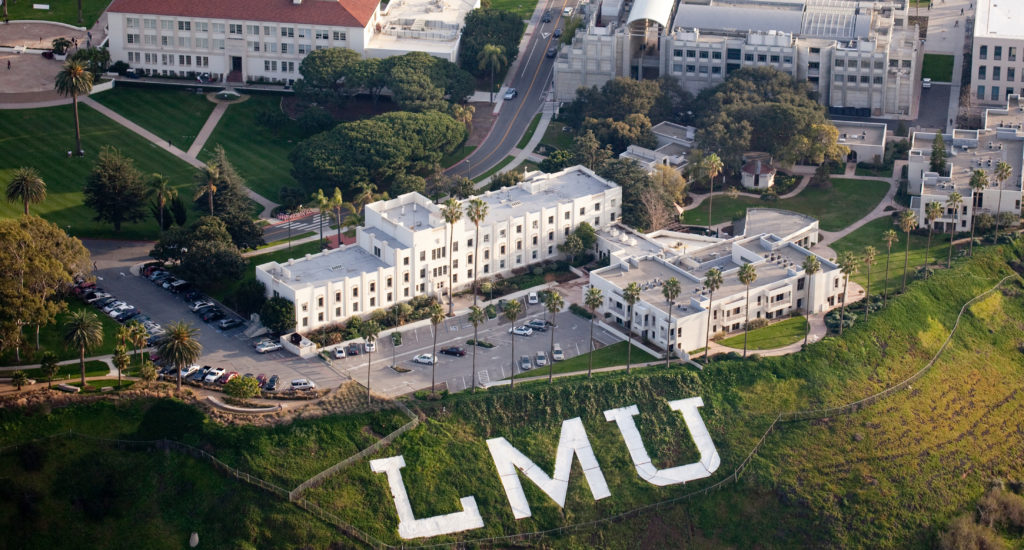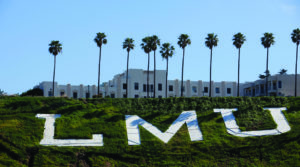Cabinet Corner is a periodic feature of LMU This Week where the university’s executive leaders share their perspectives with the community. The President’s Cabinet will provide updates on initiatives, policies, events, challenges, and areas of interest.
Vice President for Intercultural Affairs Jennifer Abe writes:
Racism: The marginalization and/or oppression of people of color based on a socially constructed racial hierarchy that privileges white people.
ADL.org
Anti-Racism: An active process of identifying and eliminating racism by changing systems, organizational structures, policies and practices and attitudes, so that power is redistributed and shared equitably.
National Action Committee on the Status of Women
International Perspectives: Women and Global Solidarity
Context
LMU is responding to the current global social movement arising from a continuing pattern, historical and systemic, of anti-Black racism. We acknowledge the ongoing historical and systemic trauma perpetuated against Black people, as well as the continuing negative physical, economic, and psychological repercussions upon the Black community. We realize our university’s anti-racism efforts are built on the sacrifice of Black lives. We also recognize the crushing weight of systemic racism and oppression upon other communities (see tu lucha es mi lucha, LGBTQ hate crimes, xenophobia against Asian Americans, and other examples).
Response to #BlackatLMU and BFSA Demand Letters
The President will be reaching out to the Black Faculty and Staff Association (BFSA) and #BlackatLMU to follow up on the communication that was sent to the University last Friday, Sept 4. We recognize that while the letter provided an overall university approach to the demands, the feedback received indicates that we need to provide greater clarity on the nature and extent of the university’s commitment to each specific demand. Over the next month or so, OIA will complete an analysis of each demand from #BlackatLMU and BFSA in order to provide a more comprehensive report. This line-by-line response will be posted on the OIA accountability webpage by Sept 29. Areas in which the university is unable to provide a complete response (e.g., due to COVID, budget, or other reasons) will also be noted, with an explanation.
LMU’s Commitment to Becoming an Anti-Racist Institution
LMU’s Anti-Racism Project invites and challenges members of the LMU community to engage in a collective commitment to anti-racism at multiple levels (e.g., institution-wide, unit-level, individual) and through different modalities (e.g., dialogue, workshops, reading, personal and communal reflection, prayer, examination of data, etc.). Anti-racism presents each of us with particular personal challenges, given our various cultural realities, social positions, religious traditions/personal worldviews, and lived experiences. Each of us is responsible for growing into anti-racism from where we are. Moving towards anti-racism as an institution, however, means that we commit to using our varied roles, training, experiences and perspectives to identify systemic issues, problem-solve, and hold our units accountable as we implement solutions and move our institution forward in a lifelong process of learning.
Campus-wide Conversations Related to Anti-Racism
LMU will hold town hall meetings this semester specifically for Black students, faculty, and staff to meet with university leaders. Note that these town hall sessions are separate from the virtual forums designed to encourage discussions for the entire campus. For the latter conversations, LMU will hold a series of virtual forums this year that are designed to encourage campus dialogue on issues related to anti-racism. Imagine small, facilitated breakout room discussions comprising undergraduates, graduate students, staff, faculty, and administrators randomly assigned together through Zoom. In these virtual forums, speakers will guide the broader community as we learn from one another. Our first forum “Whose Free Speech?: A campus-wide dialogue on free speech, personal responsibility, and impacts on anti-Black racism” highlights a fundamental tension between our First Amendment rights, which tell us that hate speech is not against the law, and our values of anti-racism, which call us to create a campus climate free from hate speech and disrespectful behaviors. How do we navigate these tensions in an already-polarized pre-election season? And how can we call on each other to be accountable, not in response to legal constraints, but in response to our deepest personal values and our university mission? We invite everyone to participate in this important discussion. Staff will be available afterwards for any students who may need additional support or follow-up.
LMU’s Strategy for Becoming an Anti-Racist Institution
Although we all come from different places, we can commit to movement in the same direction. Toward creating an institution and world that exemplifies anti-racism. At the heart of LMU’s ambitious undertaking is a systemic analysis, a process of unit-level reflection that asks everyone to proactively examine their own local practices, policies and processes in order to root out the insidious ways that racism gets “baked into” our university infrastructure. This is not about our personal intentions, politics, or values, but about our common commitment to live out our university mission in authentic intentional ways.
The commitment becomes concrete, starting from the top. Each unit at LMU will be held accountable to submit their information in the following four areas by Nov. 1, 2020:
• Description of the unit-level reflection process, whether this uses the systemic analysis framework or another approach;
• Identification of the issues that emerged through the reflection process which will be addressed;
• Description of the action steps aimed to address these issues;
• Description of the outcomes used to assess and track progress on the action steps.
Units just beginning this process are encouraged to participate in a Systemic Analysis consultation session that runs weekly, 11 a.m. -noon each Wednesday. These workshops provide technical assistance and support for units through peer consultation and access to institutional data and resources.
Units ready to share their progress are asked to give a brief presentation as part of a Systemic Analysis Report-Out session. These bi-weekly meetings (every other Tuesday, from 4-5 p.m.) will allow units to troubleshoot, get ideas, and provide feedback to each other. All members of campus are invited to participate, featuring two different campus units each time. Upcoming sessions include:
- September 15
- Unit No. 1: Career and Professional Development (under Enrollment Management).
- Unit No. 2: Department of Computer Science (under LMU Seaver College of Science and Engineering; Schools/Colleges)
- September 29:
- Unit No. 1: William H. Hannon Library (under Provost area)
- Unit No. 2: LMU Loyola Law School (under Schools/Colleges)
- October 13:
- Unit No. 1: Information Technology Services (under Administration area)
- Unit No. 2: BCLA Diversity and Inclusion Committee (LMU Bellarmine College of Liberal Arts, Schools/Colleges)
Progress will be tracked for campus units in a transparent manner (see accountability website) organized by president, provost, administration, and college/school areas (see how the units are categorized above) to facilitate comprehensive accountability for anti-racism progress that rolls up to the most senior leadership levels of the university. As units progress and data is submitted, each of the links on the webpage will become live, enabling everyone to see what is being done across campus.
Progress will be communicated to the LMU community through OIA’s monthly LMU This Week Column. Here, we will provide data, highlight activities, and give updates on the university’s progress, not just for the systemic analysis process, but also on the ongoing progress in fulfilling the university’s responses to the #BlackatLMU and BFSA demands. That is, the response to the demands is not limited to an initial university communication, but will be followed by an ongoing process of communication, collaboration, and accountability. The first monthly update will be sent out on Sept. 29. In the meantime, we are learning how to work collaboratively and consult closely with the newly renamed Presidential Black Leadership Accountability Council (P.B.L.A.C.) (formerly known as the Coordinated Actions Council) as well as Black student leaders, both graduate and undergraduate, to ensure that the university is living up to its steadfast commitments.
For the non-Black members of the LMU community, this is a time for humility, for openness to correction, for committing to an ongoing process. Along the way, we will make mistakes and will feel vulnerable and unsure. This is an important, inevitable part of the journey. For Black members of our community, the university is making a commitment to keep moving on this path. This anti-racism project will never be completely finished, not in our lifetimes. We will keep going and we will keep learning. How to do better. How to be better. For our students’ sake, and for all of ours, as well. Together, we are working towards transforming LMU into an anti-racist institution.
In service towards justice,
Jennifer
Jennifer Abe, Ph.D.
Vice President for Intercultural Affairs | Professor of Psychology



